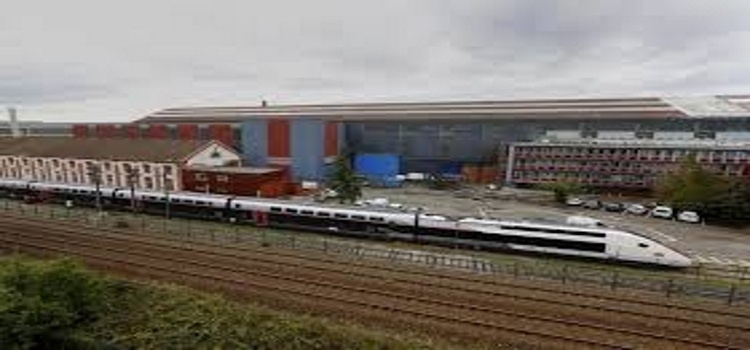
French politicians voiced concerns on Tuesday that a planned multibillion dollar merger of the rail assets of Alstom and Siemens could give the German company the upper hand.
Two sources familiar with the matter told Reuters that the French company plans to pay shareholders a special dividend if the deal does go through.
Siemens is expected to opt for a deal with Alstom rather an alternative with Canada’s Bombardier, two sources familiar with the matter told Reuters.
Siemens Mobility is set to be merged into Alstom, in which Siemens would hold 50 percent plus one share, while the chief executive would be Alstom’s current boss Henri-Poupart Lafarge.
The likely transaction has political ramifications, since the French state owns around 20 percent of Alstom.
A special dividend would even out the value of Siemens and Alstom, which has too much cash on its balance sheet, to smooth the intended 50-50 joint venture, one of the sources said.
“Will there be a special dividend? Yes,” said the second person.
Siemens and Alstom are strong in high-speed intercity trains with their ICE and TGV models.
Siemens is also the leader in signalling technology, while Bombardier – whose transportation headquarters are in Berlin – is stronger in commuter and light-rail trains.
Siemens stands to gain control of Alstom’s main business, since all of Alstom’s divisions deal with the railways and transportation industries.
SIGNS OF BACKLASH
Several politicians and French trade union activists expressed concerns over France losing control of its TGV high-speed train – a symbol of national pride that has highlighted French engineering skill – and over possible job losses.
Shares in Alstom, which had rallied in recent sessions on anticipation of a deal, slipped 0.25 percent while Siemens shares were broadly flat.
“The problem is that at the end of the day, it would likely be a Siemens company, although we still need clarification on the capital structure,” said Prime Partners fund manager Francois Savary, whose firm holds Siemens shares.
French right-wing politician Nicolas Dupont-Aignan criticised the likely deal on Tuesday as being more favourable to Germany than France, as did far-right politician Nicolas Bay, the National Front’s secretary general.
“The Franco-German partnership must not result in the eradication of French industry!” Bay said on Twitter.
Eric Woerth, a member of the right-wing Republicans’ party, voiced similar views on his Twitter account.
“Is this now the end of Alstom? Will TGV become German? Why does the government accept such an imbalance?”, he tweeted.
A tie-up between the two – aimed at creating a European champion in the railway sector similar to Airbus in aviation – would represent a reconciliation of sorts between Siemens and Alstom.
Alstom snubbed the German company in 2014 to sell its energy division to General Electric in a deal that also saw Paris take a 20 percent stake in Alstom, under a temporary agreement with construction group Bouygues.
Major train and rail technology groups active in Europe have been looking at combining their businesses as larger Chinese state-backed rival CRRC embarks on a global expansion drive.
In July, Alstom reported higher first quarter sales and it maintained its financial outlook.
Analysts at Exane BNP Paribas said a deal should benefit Alstom as growth could be restricted as a standalone company.
“We suggest that, if they participate, value creation would be limited for Siemens but material for Alstom,” said Exane BNP Paribas analysts, who raised their rating on Alstom to “neutral” from “underweight”.
“Aside from the M&A (mergers and acquisition) angle, we believe that commercially, this year will be relatively muted for Alstom. With no large contracts in sight, pressure on free cash flow should intensify due to lack of down payments received,” added the Exane BNP Paribas team.
